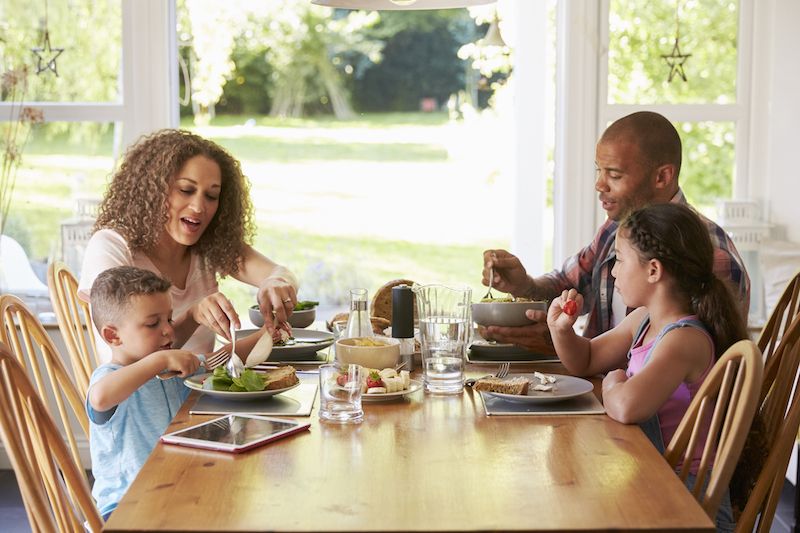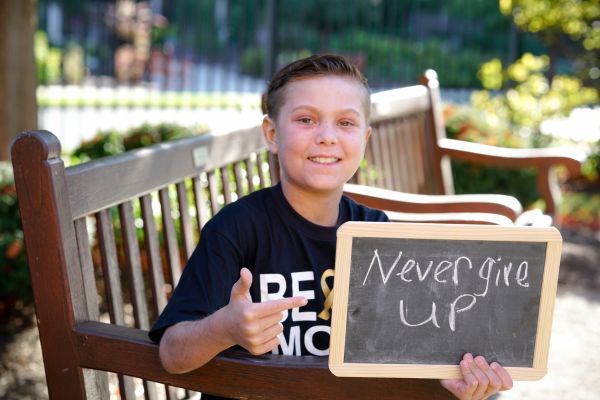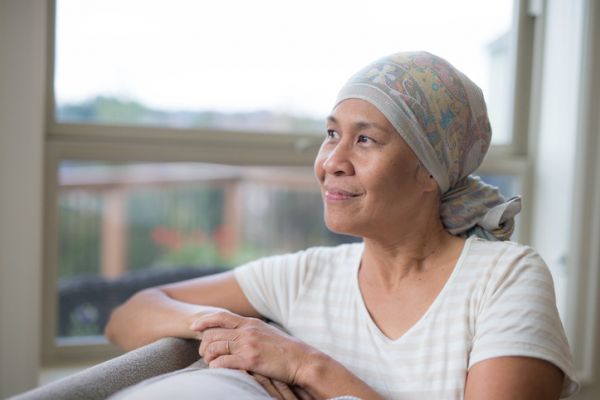What you and your caregivers need to know
The medications used in cancer treatment — especially chemotherapy and immunotherapy drugs — are very powerful. If you are handling or receiving these drugs, you must take precautions to keep everyone in your home safe.
These drugs are broken down by the liver and kidneys and most of them are excreted in the urine. While your body is processing the drugs, they can remain in your body fluids (blood, urine, stool, saliva, semen, vaginal secretions or vomit) for a few days. Your caregivers can absorb the drugs through their skin if they touch these fluids.
Short-term exposure to some of these drugs can cause skin rashes, nausea, vomiting, belly pain, cough, dizziness, eye irritation, hair loss, headache, mouth/throat/nose sores and allergic reactions. Long-term exposure has been associated with developing a second cancer, infertility and birth defects.
The precautions you will need to take depend on a number of factors, including the drug type and dose, how you receive the medication (by IV or oral pill) and your personal health. Talk to your doctor or pharmacist to learn what precautions are appropriate for you.
Handle body fluids safely
As a general rule, follow these safety measures for 48 hours after receiving chemotherapy or immunotherapy infusion:
- Wear gloves (caregivers, too) when handling body fluids, laundering soiled sheets and clothes, and cleaning up body fluid spills or splashes. After each use, throw away the gloves and wash your hands.
- Use a different toilet from others in the home (if possible), or close the toilet lid and flush twice after each time you use the toilet.
- Men should sit to urinate, to avoid splashing
- Wash your hands with soap and water after using the toilet — always.
- Change disposable undergarments (such as Depends®) immediately once soiled. Wash your hands and put on gloves. Remove the soiled undergarment and throw it away. Wash the surrounding skin with soap and water and gently pat dry. Put on a clean undergarment. Remove your gloves, throw them away, and wash your hands.
- Wash any containers or devices that have had contact with contaminated body fluids. Use soap and water and dry with paper towels. Throw away the paper towels and gloves, and then wash your hands with soap and water.
- Wash soiled sheets and clothes immediately in the washing machine. Machine wash twice in hot water with regular detergent. Wash separately from other laundry. Do not hand-wash. If you cannot wash right away, put the soiled laundry in a sealed plastic bag until you are ready.
- Clean up spills or splashes of any body fluids right away. Put on gloves and clean the area with paper towels. Throw away the paper towels, remove the gloves, dispose them, and wash your hands.
- Use separate plates, glasses and utensils from the rest of your household (or use disposables). Wash nondisposables in the dishwasher. If there is no dishwasher, use hot, soapy water and dry thoroughly.
- Seal contaminated items in a plastic bag before throwing away. You can “double bag” by putting the first sealed plastic bag inside another sealed plastic bag. Only double-bagged waste can go into the household trash. Single bagged items should go directly into an outside trash bin.
Take care with your medication at home
Chemotherapy can be given at home by a portable infusion pump, by IV from a home care nurse, or as a pill or capsule. If you are using a home infusion pump, your home care nurse should provide you with a spill kit and teach you how to use it.
If you are taking oral chemotherapy...
- Wash your hands before and after touching your medication.
- Caregivers can pour pills into a small cup and hand that to the patient, or they can wear gloves when handling the medication.
- Never break, crush, chew or open your tablets or capsules unless otherwise instructed.
- Store your medication in a place that is away from water sources, direct sunlight and excessive heat, cold and humidity. Be sure children and pets cannot reach your pills. Keep your pills in a separate place from other medicines.
- Read the medication package and any attached paperwork for additional storage requirements specific to your medication, such as refrigeration.
How to handle leftover or soiled medications
- Do not flush chemotherapy medications down the toilet or toss in the garbage (unless double bagged).
- Store your chemotherapy drugs in a safe place until you can return them. Roswell Park Comprehensive Cancer Center has drug disposal containers available on the 1st floor of the main hospital, near the ATM. New York State has Take Back programs for the collection of household drugs. Go to the NY Department of Conservation website and click on “Find a free collection site near you.”
- If you need to dispose your medication urgently and you cannot get to a drop off location, mix whole pills (do not crush or open) in water and add salt, dirt, ashes or cat litter. Do not hide them in food. Place mixture in a bag, box or plastic tub that you can seal. Secure the container with strong tape and place in your trash bin as close to trash collection day as possible.
- For more information, see Oral Drug Therapy: How to Get, Handle, Take, and Store Your Medication Safely and Effectively
What to do for an accidental exposure
- Keep calm. If the drugs got on your skin, wash the area several times with soapy water.
- Call the Poison Control Center immediately at 1-800-222-1222.
- Tell your doctor about the exposure on your next visit. One exposure may not cause harm, but you’ll want to avoid long or repeated exposures.
Never miss another Cancer Talk blog!
Sign up to receive our monthly Cancer Talk e-newsletter.
Sign up!What about sex?
These powerful cancer drugs pose two issues that patients and their partners must consider:
- Protect against drug exposure. Some chemotherapy drugs may appear in semen or vaginal fluid, so you’ll need to use barrier methods of birth control during sexual intercourse such as condoms or diaphragms to help protect you and your partner.
- Protect against pregnancy. Do not get pregnant or father a child while you are in treatment. Chemotherapy and immunotherapy drugs can damage sperm, affect menstruation, and cause damage to a fetus. If your drug therapy carries a risk of infertility – and you may want to have children in the future – talk to your doctor before you start drug therapy. Roswell Park’s Oncofertility Program can help you learn your options and connect you with appropriate services. If you take oral chemotherapy, use birth control for at least a week after your last dose. If you receive chemotherapy infusions, check with your doctor when it’s safe to stop using birth control.
Call your Roswell Park doctor right away if you have...
- A fever of 100.4°F (38°C) or higher (when temperature is taken by mouth)
- Bleeding
- Pain or redness at the IV site where you received your infusion
- Trouble swallowing or keeping down liquids or your chemotherapy pills



